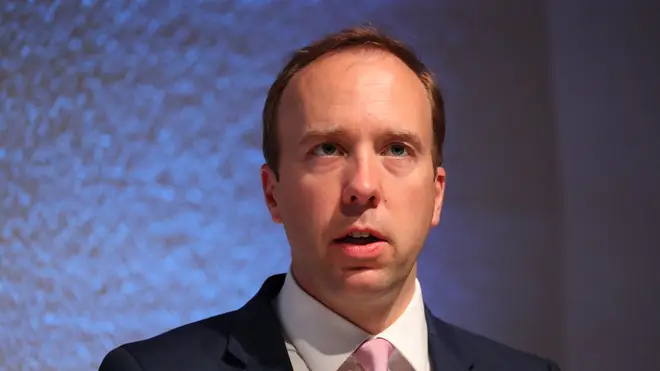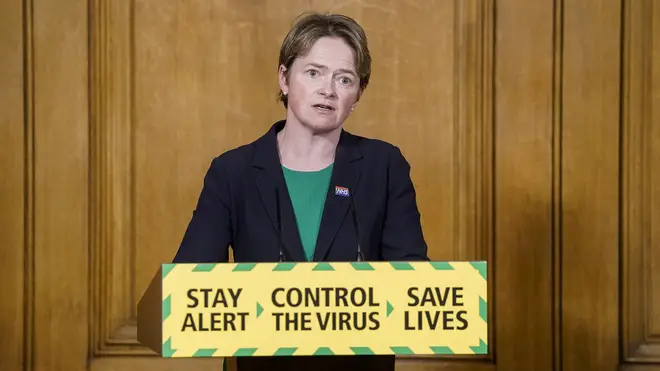
Shelagh Fogarty 1pm - 4pm
2 September 2020, 06:55

Over 70 health organisations have told Boris Johnson they are "deeply concerned" about the Government's plans to scrap and replace Public Health England (PHE).
In a joint statement sent to the Prime Minister and Health Secretary Matt Hancock, the health bodies said the plans "pay insufficient attention" to PHE's "vital" role in health improvement.
Those backing the statement include the Association of Directors of Public Health, the Faculty of Public Health, the Royal Society for Public Health, the Academy of Medical Royal Colleges, the British Medical Association and the Royal College of Physicians.
It comes after the Government revealed controversial plans to abolish PHE and replace it with a new body, the National Institute for Health Protection (NIHP)
Earlier this month, Mr Hancock said the NIHP, to be lead by Tory peer Dido Harding, would focus on health threats including infectious diseases, pandemics and biological weapons.

Doctors have previously questioned the timing of the move during the Covid-19 pandemic and claimed the proposals lacked clarity.
In their statement the health bodies said: "As organisations committed to improving health and reducing inequalities, we are deeply concerned that the Government's plans for the reorganisation of health protection in the UK pay insufficient attention to the vital health improvement and other wider functions of Public Health England (PHE).
Read more: Back to Work Warning - 100 days to save the High Street
Read more: Glasgow tightens coronavirus restrictions after rise in cases
"The rationale for establishing PHE was to end false distinctions between different parts of the public health system.
"Reorganisation risks fragmentation across different risk factors, and between health protection and health improvement.
"Organisational change is difficult and can be damaging at the best of times, and these are not the best of times. A seamless transition from the current to the new system is essential."
Health organisations highlighted that, with Covid-19 hitting people with the poorest health hardest, "chronic non-communicable diseases" are and will remain "responsible for the overwhelming burden of preventable death and disease in this country".

Boris Johnson holds Cabinet meeting on return to Westminster
They argued that Government pledges to "level up" society, such as by reducing inequalities, improving mental health and tackling obesity, require the "scaling up" of health improvement interventions.
"At this time of global pandemic and recession, health improvement is not just 'nice to have'. It is an essential component of a successful response to the challenges we face, which will also help support national economic recovery by increasing productivity and employability," the statement said.
It is accompanied by a letter due to be published in the British Medical Journal on Wednesday which warns: "It is a false choice to neglect vital health improvement measures, such as those that target smoking, obesity, alcohol and mental health, in order to fight Covid-19."
It comes ahead of Wednesday's first meeting of the Stakeholder Advisory Group, convened to provide expert input on the future of PHE's health improvement functions.
Health groups acknowledged that a reorganisation of public health could bring opportunities for improvement but only if there is "greater investment combined with an emphasis on deepening expertise, improving co-ordination, and strengthening accountability".
Alongside their statement they set out principles they believe should underpin a new health improvement system.
They include a reversal of public health funding cuts, maintaining levels of high-quality expertise, infrastructure to support delivery at national, regional and local levels, and improved co-ordination between the NHS and local government.
Speaking in the House of Commons on Tuesday, Mr Hancock said the NIHP would "ensure that the ill-health prevention agenda, the health improvement agenda, is embedded fully right across the health system, including the NHS".